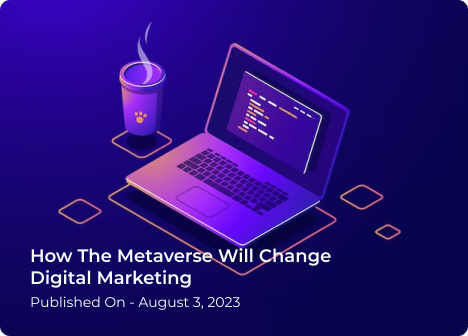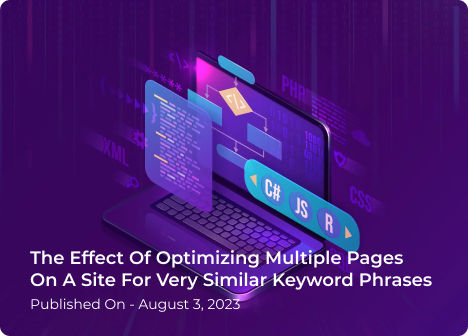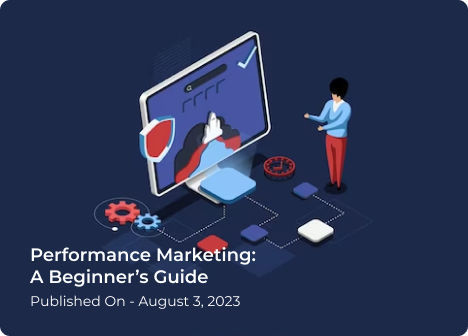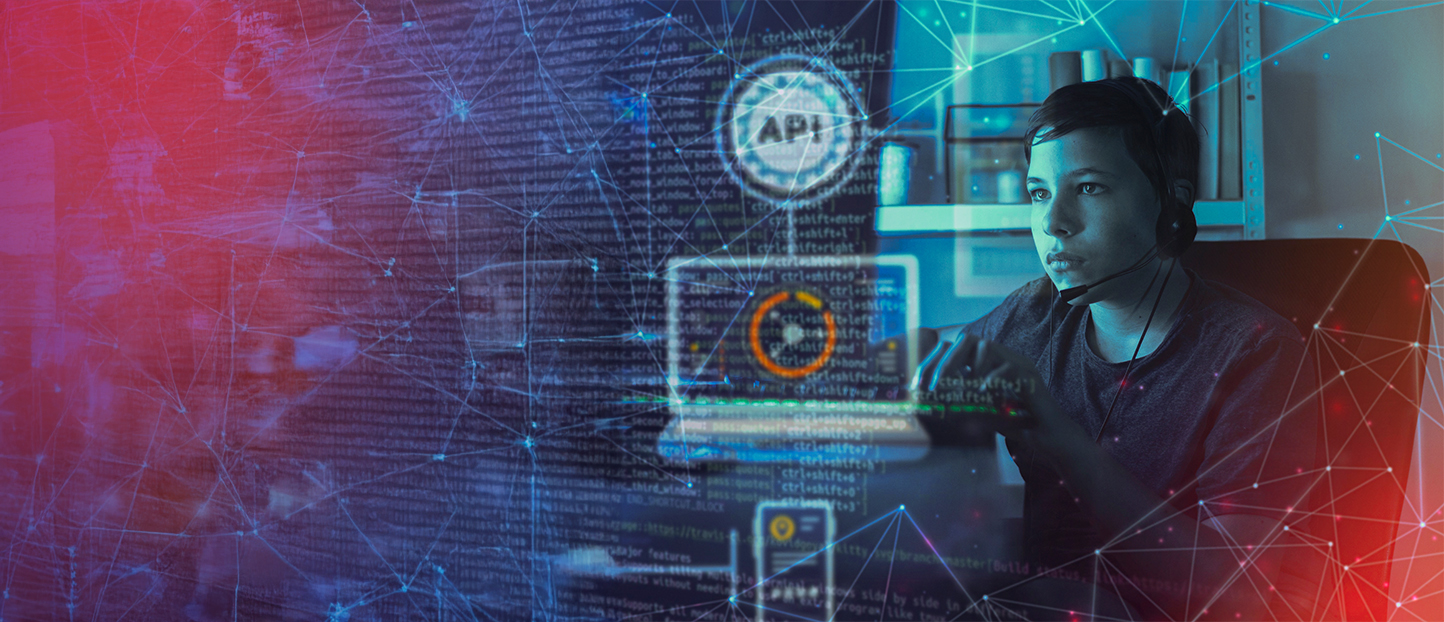AI is going to take over 60 to 70 percent of coding!
AI is going to be involved in everything—from e-commerce to entertainment, healthcare, and education!
AI is expected to participate in elections, surpassing human candidates, and colonize the world with AI-powered children!
The gap between the myth and the reality of AI is only this wide. People are creating modern-day lore about how AI is transforming the current world and how human beings might lose their dominance to AI in the very near future.
But are these stories true? Especially when it comes to AI in software development services?
Let’s take a closer look!
Will AI Take Over Software Development?
This question doesn’t have a straightforward answer. By analyzing the current growth trend of AI and the existing tools AI has, let’s explore the areas in software development that will be significantly influenced by AI.
1. AI influence in Requirements Gathering
The first step in software development is always requirement gathering. So, how is AI making changes in this area? AI is introducing a variety of tools to streamline and improve this process.
For instance, Google ML Kit is a mobile SDK for integrating machine learning features into apps, enhancing data processing.
Infosys Nia is an AI platform that automates business processes and enhances data-driven decision-making.
Similarly, Natural Language Processing (NLP) can take user requirements in simple language and automatically generate high-level software models. Large language models can perform a variety of NLP tasks and be trained with custom datasets to better align with specific project needs.
These advancements demonstrate some of the benefits of AI in software development, particularly in enhancing the efficiency and accuracy of the requirements gathering phase.
2. AI influence in Prototyping
The next important stage is prototyping, where a rough draft of how the software should be generated is created. In this stage, AI has a significant influence.
There are many AI-driven tools that can produce the first lines of code without human intervention, thereby reducing human errors in the process.
Examples include:
Open AI Codex: An AI system that can translate natural language into code, applicable to any programming task.
Tabnine: This tool provides real-time, smart code suggestions and supports over 20 programming languages.
CodeT5: An AI model that helps create code snippets efficiently.
By using tools like these, the prototyping phase is made much faster and more accurate, in an AI-driven software development services scenario.
Recommended reading
3. AI influence in Coding
Artificial Intelligence plays a key role in automating and improving coding processes. Here are some of the ways AI is influencing coding:
AI can generate the necessary code based on the prototype, saving time and reducing human effort.
AI can simplify complex code and enhance its quality, making it easier to maintain and debug.
AI can optimize code, making it more efficient by improving performance and reducing redundancies.
AI can restructure existing code without changing its external behavior, ensuring the system remains functional while improving readability and maintainability.
Several AI tools are helping developers achieve these goals, making coding faster, more efficient, and error-free. Examples of such tools being – GitHub Copilot, Kite, Codex (by OpenAI), DeepCode etc.
Thus, Future of coding with AI looks vibrant and colorful.
4. AI Influence in Software Testing
The cost of software testing can be reduced by up to half when AI-powered automation is utilized properly. AI can capture and track changes, make better modifications, and use them in the code while testing. Test automation can be achieved much more effectively with AI.
Examples of certain AI tools that can be used for testing include:
Appvance: An AI-driven testing platform that automates the creation and execution of tests.
Functionize: Uses AI to generate, execute, and maintain tests, making testing smarter and more efficient.
Testim.io: An AI-powered test automation platform that accelerates test creation and execution through machine learning.
Now that you understand the future trends in software development services, where AI is expected to play a major role, let’s explore the potential disadvantages that may arise if AI dominates in these areas.
Potential Disadvantages of AI in Software Development
AI is certainly revolutionizing software development; however, there are numerous possible drawbacks to its ever-greater dominance of AI tools in software development services. Let’s explore some of these issues:
1. Human Creativity and Innovation in the Loss
AI tools are great in automating tasks and make things efficient but cannot possibly replicate the creative ability of human developers in solving complex problems. Thereby, over-reliance on AI-driven software development services would stifle innovation and reduce the diversity of ideas and solutions.
2. Job Displacement and Skills Gap
As AI assumes routine coding, demand for junior developers or manual testers might decline in some cases. Those who do not have advanced skills to work alongside the AI could suffer job displacement.
3. Over-reliance on AI Models
AI systems can only be as good as the data they are trained on. If AI models are not trained correctly or if they hit unseen or biased data, it can produce wrong or erroneous results. Thus, Over-reliance on AI-powered automation could lead to systematic errors in the code and thus undermine trust in the development process.
Recommended reading
4.Ethical and Security Concerns
Based on biased datasets, AI in software development services sometimes lead to biased or unethical results. Further, the use of AI in software development services also poses potential security threats when AI models or code generation tools are not duly tested, making the systems even more vulnerable to attacks.
5.Increased Complexity of AI Integration
The integration of AI into existing software development workflows may be complex and time-consuming because developers would have to learn new tools and understand how AI models work, adding an extra layer of complexity in the development process.
Most of the AI-driven tools act like black boxes, meaning that the developer will not know what decision the algorithm is making. This can make it hard to explain or even debug problems with AI-generated code, causing a loss of control in the development process.
6.Cost of AI Implementation
Though it promises to make development processes way more efficient in the long term, this initial investment in the form of tools and infrastructure which are essentially AI-powered are not too cheap. Hence, for a small business or startup, the price of adopting AI tools in software development services might just be out of reach for them.
So, Should AI Tools in Software Development Services Be Banned?
Never. That is not the right way to handle this situation. AI-driven software development services have their negatives and positives, just like the two sides of a coin. The solution lies in human beings using AI prudently.
Simply put, AI shouldn’t be treated as the master of human beings, but as a faithful servant who can help human beings improve their work tremendously.
With conscious decisions, humans can utilize AI to its fullest potential while ensuring they don’t lose their higher consciousness, which includes creativity, problem-solving skills, and qualities that no AI can possess.
So, it’s not about banning AI; it’s about the hand-in-hand growth of AI and human power—together in every area, and specifically in the software development domain. This is the need of the hour.
Explore more











 +91 8714 60 30 48
+91 8714 60 30 48
 + 971 44 92 87 30
+ 971 44 92 87 30





